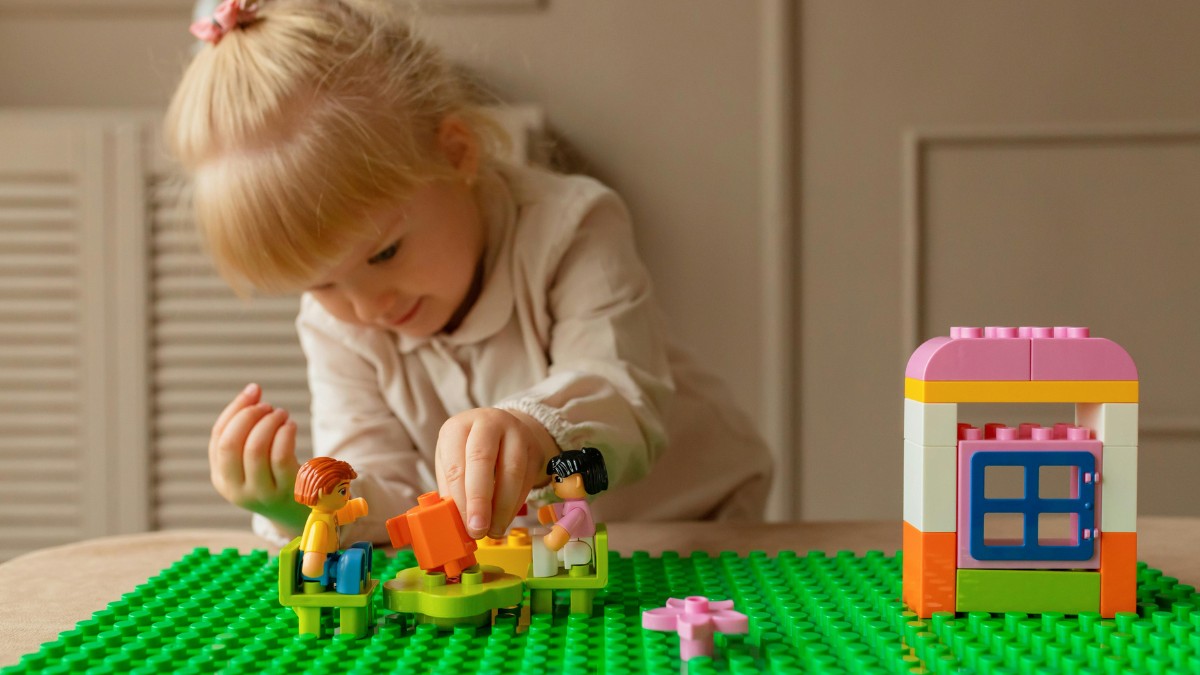Top ADHD Games for Focus and Fun
Unleash your focus and win with ADHD games! Discover cognitive training, physical activity, digital, and social interaction games.
.avif)
Top ADHD Games for Focus and Fun
Understanding ADHD and Games
When it comes to individuals with ADHD, games can serve as effective tools to enhance focus and attention. By understanding how ADHD affects focus and attention, recognizing the benefits of games, and identifying the types of games suitable for ADHD, we can unleash the potential of gaming as a supportive care approach.

How ADHD Affects Focus and Attention
ADHD, or Attention Deficit Hyperactivity Disorder, is a neurodevelopmental condition that affects both children and adults. One of the main challenges faced by individuals with ADHD is difficulty in maintaining focus and sustaining attention. They may struggle with distractions, have trouble staying organized, and exhibit impulsive behavior.
Benefits of Games for Individuals with ADHD
Games can provide several benefits for individuals with ADHD. They can act as a structured and engaging activity that captures attention, promotes concentration, and improves cognitive skills. Some specific benefits of games for individuals with ADHD include:
- Increased focus and attention span: Games that require sustained focus can help individuals with ADHD practice and improve their ability to concentrate for longer periods of time.
- Improved executive function skills: Games that involve planning, problem-solving, and decision-making can enhance executive function skills, which are often impaired in individuals with ADHD.
- Enhanced cognitive abilities: Games can stimulate cognitive processes such as memory, processing speed, and cognitive flexibility, helping individuals with ADHD strengthen these cognitive skills.
Types of Games Suitable for ADHD
Not all games are created equal when it comes to individuals with ADHD. Certain types of games tend to be more suitable and effective in supporting their needs. Here are some of the game categories that can be particularly beneficial for individuals with ADHD:
By understanding the impact of ADHD on focus and attention, recognizing the benefits of games, and identifying the types of games that are suitable for individuals with ADHD, we can leverage games as a valuable tool in supporting individuals with ADHD. Whether it's cognitive training games, physical activity games, digital games, or social interaction games, the right games can provide a fun and effective way to improve focus, attention, and cognitive skills.
Cognitive Training Games
Individuals with ADHD can benefit from cognitive training games that specifically target focus, memory, and problem-solving skills. These games can help improve attention span, working memory, and executive function abilities. In this section, we will explore focus and memory games as well as problem-solving games that are suitable for individuals with ADHD.
Focus and Memory Games
Focus and memory games are designed to enhance attention and working memory, which are often areas of difficulty for individuals with ADHD. These games help individuals practice sustaining focus and improving their ability to remember and recall information.
Problem-Solving Games
Problem-solving games can help individuals with ADHD develop critical thinking skills, improve decision-making abilities, and enhance their problem-solving strategies. These games encourage individuals to think creatively and find solutions to various challenges.
Cognitive training games can be a valuable tool for individuals with ADHD to improve their focus, memory, and problem-solving abilities. It's important to choose games that are engaging, age-appropriate, and align with the individual's interests and abilities. Incorporating these games into a structured routine can provide opportunities for skill development while offering a fun and enjoyable experience.

Physical Activity Games
Physical activity games can be a fantastic way to engage individuals with ADHD while providing an outlet for their energy. These games not only promote physical health but also help improve focus, attention, and overall well-being. Whether played outdoors or indoors, physical activity games offer a fun and interactive way to manage ADHD symptoms. Let's explore two categories of physical activity games: outdoor games and indoor games.
Outdoor Games
Outdoor games provide an opportunity for individuals with ADHD to enjoy fresh air, sunshine, and the freedom to move. These games often involve physical exertion, which helps release excess energy and improve focus. Here are a few popular outdoor games suitable for individuals with ADHD:
Indoor Games
When outdoor play is not possible due to weather or other circumstances, indoor games provide a great alternative for individuals with ADHD. These games can be played in smaller spaces and still offer the benefits of physical activity. Here are a few examples of indoor games suitable for individuals with ADHD:
By incorporating outdoor and indoor physical activity games into a routine, individuals with ADHD can reap the benefits of improved focus, increased energy expenditure, and enhanced overall well-being. It's important to choose games that suit individual preferences and abilities while ensuring a safe and enjoyable experience.
Digital Games
In the modern world, digital games have become increasingly popular as a form of entertainment and engagement. When it comes to individuals with ADHD, digital games can offer unique benefits and considerations. Let's explore the realm of digital games, including apps and online games, and delve into the benefits and considerations they offer for individuals with ADHD.
Apps and Online Games
Apps and online games designed specifically for individuals with ADHD can provide a range of cognitive and behavioral benefits. These games are often developed with features that cater to the needs of individuals with ADHD, such as visual and auditory cues, structured tasks, and engaging gameplay. Some popular types of digital games for individuals with ADHD include:
- Focus games: These games aim to improve attention and focus by challenging players to stay engaged and concentrate on specific tasks or objectives. They often involve puzzles, timed activities, or activities that require sustained attention.
- Memory games: Memory games can help individuals with ADHD enhance their working memory and cognitive skills. These games typically involve remembering sequences, patterns, or information, which can be especially beneficial for improving memory and recall.
- Problem-solving games: Problem-solving games encourage individuals to think critically and find solutions to various challenges. These games often require planning, strategizing, and logical thinking, which can help individuals with ADHD develop problem-solving skills and enhance their executive functioning abilities.
Benefits and Considerations
Digital games offer several benefits for individuals with ADHD. These games can provide a fun and engaging way to improve focus, attention, memory, and cognitive skills. They can also serve as a tool to enhance self-regulation and time management skills, as many games have built-in timers or progress tracking features. Additionally, digital games can provide a sense of accomplishment and boost self-esteem when individuals achieve goals or overcome challenges within the game.
However, it's important to consider some key factors when incorporating digital games into an ADHD management plan. Here are a few considerations:
- Age appropriateness: Ensure that the games selected are age-appropriate and align with the individual's interests and abilities. Different age groups may benefit from different types of games, so it's essential to find games that are suitable for the individual's developmental stage.
- Screen time management: Set clear guidelines and limits for screen time to prevent excessive usage and potential negative effects. It's important to strike a balance between game time and other activities, such as physical exercise, social interactions, and educational pursuits.
- Supervision and monitoring: Monitor the individual's game usage and progress to ensure they are engaging in a healthy and balanced way. Regularly check in with the individual to assess their experience, address any challenges or concerns, and offer guidance when needed.
By exploring the world of digital games, individuals with ADHD can find enjoyable and beneficial ways to enhance their cognitive skills, improve focus, and engage in entertaining activities. It's essential to strike a balance between game time and other aspects of life, while also considering individual needs and preferences.

Social Interaction Games
For individuals with ADHD, social interaction games can be a valuable tool for improving focus, attention, and social skills. These games not only provide entertainment but also create opportunities for individuals with ADHD to engage with others in a structured and supportive environment. In this section, we will explore two types of social interaction games: group games and role-playing games.
Group Games
Group games are a fantastic way for individuals with ADHD to interact with peers, develop social skills, and enhance their ability to focus and follow rules. These games often involve teamwork, cooperation, and healthy competition. Engaging in group games can help individuals with ADHD improve their ability to take turns, communicate effectively, and manage impulsivity.
Here are some examples of group games that can be beneficial for individuals with ADHD:
Group games provide an opportunity for individuals with ADHD to practice social skills, including listening, taking turns, and following rules. These games can be enjoyed with family, friends, or in a group setting, promoting social interaction and bonding.
Role-Playing Games
Role-playing games offer a unique and immersive experience for individuals with ADHD. These games involve creating and assuming the roles of fictional characters in a collaborative storytelling environment. Role-playing games encourage creativity, problem-solving, and social interaction. They also provide a safe space for individuals with ADHD to express themselves and explore different aspects of their personality.
Here are some examples of role-playing games that can be beneficial for individuals with ADHD:
Role-playing games provide individuals with ADHD an opportunity to develop social skills, creativity, and problem-solving abilities. These games encourage teamwork, communication, and strategic thinking, while also fostering a sense of community and friendship.
By engaging in social interaction games, individuals with ADHD can not only have fun but also enhance their focus, attention, and social skills. Whether it's participating in group games that promote cooperation and turn-taking, or immersing themselves in the imaginative world of role-playing games, individuals with ADHD can find enjoyment and growth through these interactive experiences.
Strategies for Effective Game Use
To make the most of ADHD games and enhance their effectiveness, it is important to implement certain strategies. These strategies can help individuals with ADHD set goals, establish limits, incorporate games into their daily routine, and monitor progress.
Setting Goals and Limits
Setting clear goals and limits is essential when using ADHD games. By establishing goals, individuals can focus their attention and track their progress. This provides a sense of direction and motivation. Some examples of goals individuals with ADHD can set include improving focus, enhancing problem-solving skills, or increasing attention span.
In addition to goals, it is important to set limits on the amount of time spent playing games. This helps prevent excessive gaming and ensures a balanced approach. By setting specific time limits, individuals can allocate time for other activities, such as schoolwork, physical exercise, or social interaction.
Incorporating Games into Daily Routine
To maximize the benefits of ADHD games, it is helpful to incorporate them into the daily routine. By integrating games into a structured schedule, individuals can create a sense of consistency and make game time a regular part of their day. This can help individuals develop a habit of engaging in games that promote focus and attention.
It is important to find the right balance between game time and other activities. By scheduling game sessions at appropriate times, such as after completing important tasks or during designated break periods, individuals can optimize their focus and attention during gameplay.
Monitoring Progress and Adjusting Strategies
Regularly monitoring progress is crucial when using ADHD games. This allows individuals to assess the effectiveness of their game-based interventions and make necessary adjustments. By monitoring progress, individuals can identify areas of improvement and adapt their strategies accordingly.
One way to monitor progress is by keeping a record of game performance. This can include tracking scores, completion rates, or time spent on specific tasks within the games. By analyzing this data over time, individuals can identify patterns, improvements, and areas that may need additional focus.
Additionally, seeking feedback from others, such as parents, teachers, or therapists, can provide valuable insights and perspectives on the impact of game use. Collaborating with professionals can assist in tailoring game strategies to better suit individual needs and goals.
By implementing these strategies, individuals with ADHD can enhance the effectiveness of game-based interventions, improve focus and attention, and make the most out of their gaming experience. It is important to remember that these strategies should be personalized to suit individual preferences, abilities, and goals.
Sources
https://health.clevelandclinic.org/video-game-for-adhd-treatment
https://www.additudemag.com/slideshows/best-board-games-adhd-kids














